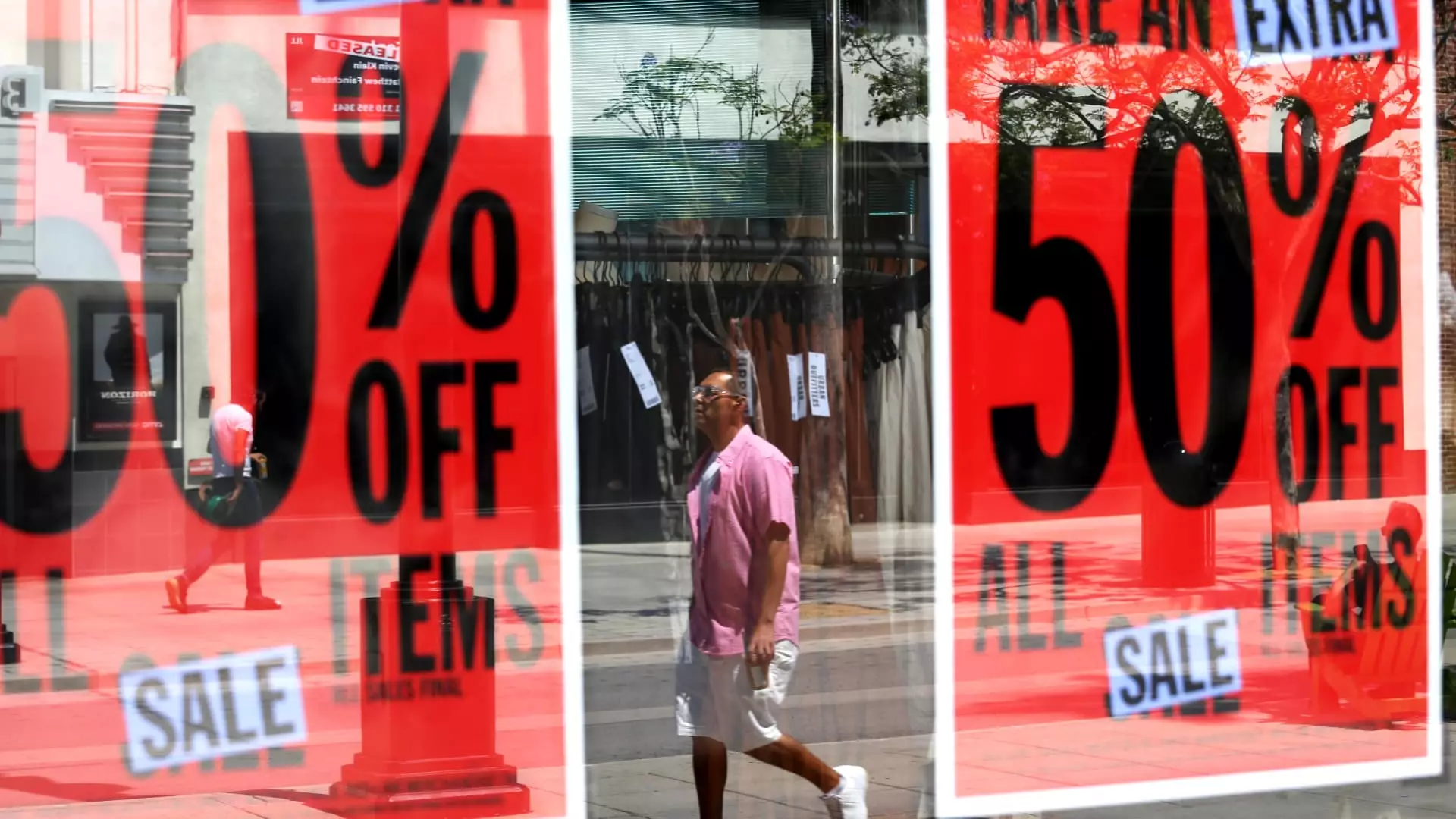The American retail landscape is staring into the abyss as the repercussions of President Donald Trump’s trade policies begin to unfold. There is a palpable anxiety among retailers, many of whom are not only bracing for a downturn in consumer spending but are also facing an existential crisis marked by volatility and uncertainty. While companies scramble to strategize around tariffs, they are using a unique and somewhat desperate marketing approach to encourage consumers to “buy now” before anticipated price increases take effect. The alarm bells have sounded, and the instinct to push products out of the door is evident in promotional tactics that suggest an imminent storm on the horizon.
A myriad of brands, from smaller enterprises like Bare Necessities to direct-to-consumer giants, have been quick to utilize the talk of tariffs in their marketing messages. “Stock up before prices increase” has become a rallying cry in advertisements, creating an urgency among consumers akin to a fire sale. This tactic reflects a recognition of the impending decline in consumer confidence and the potential for a significant budget throttling once tariffs kick in fully.
The Effect of Tariffs on Market Sentiment
Tariff discussions have produced a phenomenon that experts like Sonia Lapinsky aptly describe as a “skittish customer.” Individuals are becoming increasingly cautious in their spending habits, weighing their options as uncertainty proliferates. The complex dynamics between supply chains and pricing were thrown into chaos when the administration originally proposed steep tariffs on various goods, which perfectly illustrates the precariousness retailers find themselves in. The fluctuations in duties, currently observed, do not offer a stable environment for businesses to operate effectively.
Stores that depend on goods imported from strategies in China now sit under an ominous shadow of potential hikes in costs, upwards of 145% in duties. This has forced some businesses to halt or cancel orders altogether. The ripple effects of these political maneuvers are especially pronounced for smaller companies, which are often less nimble in adapting to such shifts. Without their own vast networks of suppliers, these companies face financial death spirals at the first sign of consumer reluctance. The retaliation of tariffs hits differently for smaller brands, emphasizing a critical need for innovative ways to keep cash flow alive in a climate fraught with unpredictability.
Creative Promotions: A Band-Aid Solution?
Several retailers have rolled out “pre-tariff sales,” implementing temporary price reductions to entice consumers to make purchases while they still can. Bare Necessities showcased this practice with discounts that evoked a sense of urgency among shoppers. However, while this strategy may create short-term demand, it raises questions about the sustainability of such tactics when facing larger planning challenges stemming from tariffs. Will these drastic price cuts lead to long-term loyalty, or are they merely a temporary fix that fails to address the core issues at hand?
Retailers are painfully aware that the dynamics of their relationship with consumers are shifting. It isn’t simply about making a sale today; it’s about ensuring viability for tomorrow. As they grapple with this precarious balance, leaders in the retail space understand that satisfying immediate demand often comes at the risk of forfeiting longer-term margins—or worse, brand reputation.
Humor as a Shield Against the Political Divide
Brands such as Beis have embraced humor in addressing the tariff conundrum, producing messages that straddle a fine line between concern and comedy. Their approach leans into relatability, adopting a tone that acknowledges the absurdities of the current political climate while subtly encouraging purchases in the here and now. In a world where social media is rife with political polarization, maintaining a neutral stance while still driving sales is both a nuanced art and a savvy operational strategy.
Humor is not merely an accessory; it’s a cornerstone for brands that need to engage ethically and effectively with their customer base during trying times. It diffuses the inherent tensions tied to political beliefs surrounding tariffs, turning a potential alienating discussion into an invitation for consumer engagement. Shoppers may not be able to control the tariffs, but they can control their purchasing habits—an empowering message that resonates in a politically charged environment.
The Reality Check for Retailers
Despite the frantic promotional activities to boost cash flow, retail experts caution that these strategies are often temporary solutions to a larger problem. As uncertainty looms over tariffs and potential recessions, a strategy rooted in short-term gains may overlook the long-term implications these prices and promotions will have on brand integrity. Retailers must realize that gut reactions often lead to tenuous outcomes; their decisions today could influence their capacity to rebound in the months and years to come.
If the conversation surrounding tariffs teaches us anything, it is that retailers must adapt to a shifting landscape navigating both economic and political challenges. The pulse of consumer spending may tremble as uncertainty continues to rear its head, and the survival of many retailers could hinge on their adeptness to execute strategies that go beyond mere panic sales. In the face of adversity, those brands that maintain authenticity, transparency, and a commitment to their customer base will emerge stronger, enriching the narrative of American commerce despite the challenges that threaten to slice against its fabric.

